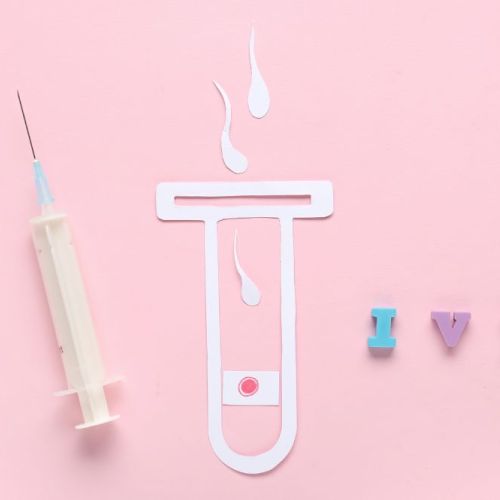Healthy Diet: A Fertility Diet?

If you’ve been trying to get pregnant for many months without success, it’s only natural to speculate about whether you or your partner has an underlying medical condition that impacts your fertility.
While many couples eventually do learn that their fertility issue is a result of a physical problem, such as low sperm count, poor sperm motility, blocked fallopian tubes, or polycystic ovary syndrome, the vast majority of couples struggling to conceive are surprised to find out that their problem could be related to lifestyle factors.
For women, one of those factors is diet. Although fertility experts don’t know exactly how a woman’s nutritional status affects her chances of conceiving, ongoing research is painting a picture of the kinds of foods that may support optimal fertility, as well as those that appear to interfere with it.
Whether you plan to follow a healthy fertility diet to maximize your likelihood of conceiving with in vitro fertilization (IVF), or you simply want to do everything you can to boost your chances of becoming pregnant on your own, making the right changes in your diet can have a significant effect on your fertility. Here’s what you need to know.
The landmark Nurses’ Health Study
Although there have been several large-scale studies on how diet affects female fertility, the first and most comprehensive of its kind — the precedent-setting Nurses’ Health Study (NHS) — remains the benchmark for the amount of detailed information it reveals.
The NHS, an ongoing multi-study project that began in 1976 and continues to this day, has grown to include more than 275,000 participants. Because it emphasizes regular follow-up of long-term participants, including repeated assessment of health and lifestyle factors, the NHS has long played an instrumental role in shaping public health recommendations.
Part of its research includes the first comprehensive examination of diet and fertility, which it conducted in an eight-year study of more than 18,000 women. The study revealed that making certain dietary changes can help increase ovulation and improve your chances of getting pregnant.
Fertility diet recommendations
In summary, the dietary recommendations drawn from the NHS fertility study look like any healthy diet: They emphasize the benefits of focusing on nutrient-dense, whole foods like vegetables, fruits, whole grains, lean protein sources, and healthy fats. They also stress the importance of limiting refined grains and foods that are high in added sugars, preservatives, and unhealthy fats. Specifically, you should:
Eat more plant-based proteins
If you eat a lot of chicken, eggs, meat, or pork, simply replacing one serving of animal protein a day with a serving of dried legumes (beans, peas, and lentils), soybeans, tofu, or other form of plant-based protein can boost your fertility.
Choose complex carbs as often as possible
Whenever possible, choose slow-digesting complex carbohydrates like whole grains and whole fruit over simple carbohydrates like white bread and fruit juice. By helping you maintain stable blood sugar and insulin levels, complex carbs promote normal ovulation.
Include heart-healthy unsaturated fats
Including more unsaturated fats (think monounsaturated and polyunsaturated fatty acids) in your diet can help decrease chronic inflammation and improve your body’s sensitivity to insulin, both of which foster optimal fertility. To boost your intake of unsaturated fats, include more nuts, seeds, vegetable oils, and salmon.
Steer clear of trans fats
Trans fats, a type of manmade fat that’s associated with an increased risk of heart disease, stroke, and diabetes, also appear to have a negative impact on fertility. To steer clear of trans fats, avoid margarine, fried foods, and any food product that contains partially hydrogenated oils.
Eat more iron-rich plants
The NHS study shows that women who get extra iron from plant sources appear to have less trouble conceiving than those who get most of their iron from meat and other animal sources. Whole-grain cereals, legumes, dried fruit, nuts, and seeds are just a few good plant-based sources of iron.
Stay hydrated, but watch what you drink
Staying hydrated keeps all your body systems — including your reproductive system — working smoothly. Although coffee and tea are okay in moderation when you’re trying to get pregnant, water is the best way to keep yourself hydrated and protect your fertility.
If you drink milk, choose whole milk over skim, because skim milk appears to have a negative impact on female fertility. You should also skip sugary sodas, which have been linked to problems with ovulation.
Other beneficial lifestyle changes
While following fertility diet recommendations can make a real difference in your ability to conceive naturally, it’s just one of many helpful lifestyle changes you can make to support optimal fertility.
Besides eating well, maintaining a healthy body weight is one of the most important steps you can take to encourage normal ovulation and maximize your chances of becoming pregnant. Staying moderately active most days of the week also supports normal ovulation, as does avoiding tobacco and alcohol.
If you’d like to learn more about the link between diet and fertility, our team of specialists at California Center for Reproductive Health is ready to help. Call your nearest clinic in Encino, West Hollywood, Santa Monica, or Valencia, California, or use the convenient online tool to schedule a consultation.
Eliran Mor, MD
Reproductive Endocrinologist located in Encino, Valencia & West Hollywood, CA
FAQ
What does a reproductive endocrinologist and infertility specialist do?
Reproductive endocrinology and Infertility is a sub-specialty of Obstetrics and Gynecology. In addition to managing medical and surgical treatment of disorders of the female reproductive tract, reproductive endocrinologist and infertility (REI) specialists undergo additional years of training to provide fertility treatments using assisted reproductive technology (ART) such as in vitro fertilization.
Reproductive endocrinologists receive board certification by the American Board of Obstetrics and Gynecology in both Obstetrics and Gynecology and Reproductive Endocrinology and Infertility.
When should I see an REI specialist?
In general, patients should consider consulting with an REI specialist after one year of trying unsuccessfully to achieve pregnancy. The chance of conceiving every month is around 20%, therefore after a full year of trying approximately 15% of couples will still not have achieved a pregnancy.
However, if a woman is over the age of 35 it would be reasonable to see a fertility specialist earlier, typically after 6 months of trying.
Other candidates to seek earlier treatment are women who have irregular menses, endometriosis, fibroids, polycystic ovary syndrome (PCOS), women who have had 2 or more miscarriages, or problems with the fallopian tubes (prior ectopic pregnancy).
What are the reasons we are having trouble conceiving?
Approximately 1/3 of the time cause for infertility is a female factor, 1/3 of the time a male factor, and the remaining 1/3 a couples’ factor.
At CCRH, we emphasize the importance of establishing a correct diagnosis. Both partners undergo a comprehensive evaluation including a medical history and physical exam.
Furthremore, the woman’s ovarian reserve is assessed with a pelvic ultrasound and a hormonal profile. A hysterosalpingogram (HSG) will confirm fallopian tube patency and the uterine cavity is free of intracavitary lesions. A semen analysis is also obtained to evaluate for concentration, motility, and morphology of the sperm.
Additional work up is then individualized to direct the best possible treatment option for each couple.
What is IVF? What is the process like?
In vitro fertilization (IVF) is the process that involves fertilization of an egg outside of a woman’s body.
The process starts with fertility drugs prescribed to help stimulate egg development. In your natural cycle, your body is only able to grow one dominant egg, but with stimulation medication we can recruit multiple eggs to continue to grow. After about 8-10 days of stimulation, the eggs are surgically retrieved and then fertilized with sperm in a specialized laboratory. Fertilized eggs are then cultured under a strictly controlled environment within specialized incubators in the IVF laboratory for 3-5 days while they develop as embryos. Finally, embryos (or an embryo) are transferred into the uterine cavity for implantation.
Should I have IVF?
Before deciding if IVF is the right choice, it’s important to sit down with an REI specialist to discuss available treatment options. For some people, other methods such as fertility drugs, intrauterine insemination (IUI) may be the best first choice treatment. At CCRH, we believe each individual couple is unique and not everyone needs IVF.
Is the IVF procedure painful?
While not painful, the fertility medications may some side effects including headaches, hot flashes, mood swings, and bloating. The injection sites may also bruise.
Will IVF guarantee a baby?
Unfortunately, no. Many people think once they start IVF it’s a matter of time that they will be pregnant and have a baby. But according to national statistics per the Society of Assisted Reproduction (SART), on average 40% of assisted reproduction cycles achieve live births in women under age 35. The chances of success then continue to decrease with advancing age.
At CCRH, we employ only evidence-based interventions to ensure patient safety and optimal outcome. While we cannot guarantee a baby, we guarantee that you will receive the best, most advanced, personalized care to help you maximize your chance of a baby.
What is the success rate for IVF?
The average IVF success rate (success measured in live birth rate) using one’s own eggs begins to drop around age 35 and then rapidly after age 40. This is due to the decline in egg quantity and egg quality as a woman ages.
Our clinic’s success rate consistently beats the national average year after year.
Do insurance plans cover infertility treatment? How much does IVF cost?
Individual insurance plans often do not have any coverage for infertility treatments. If you have a group plan, you can call members services to see if they have coverage for infertility (including consultation/workup and IVF).
After your consultation with our REI specialist, one of our dedicated account managers with sit with you to go over the cost of treatment.




